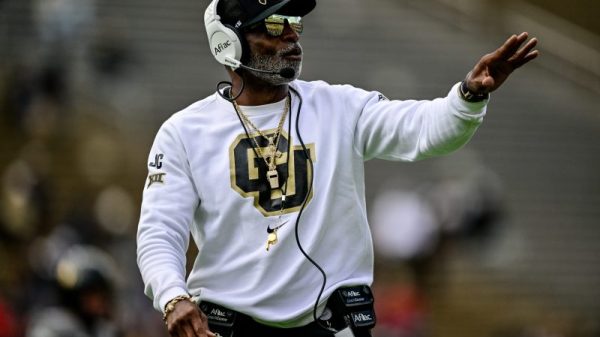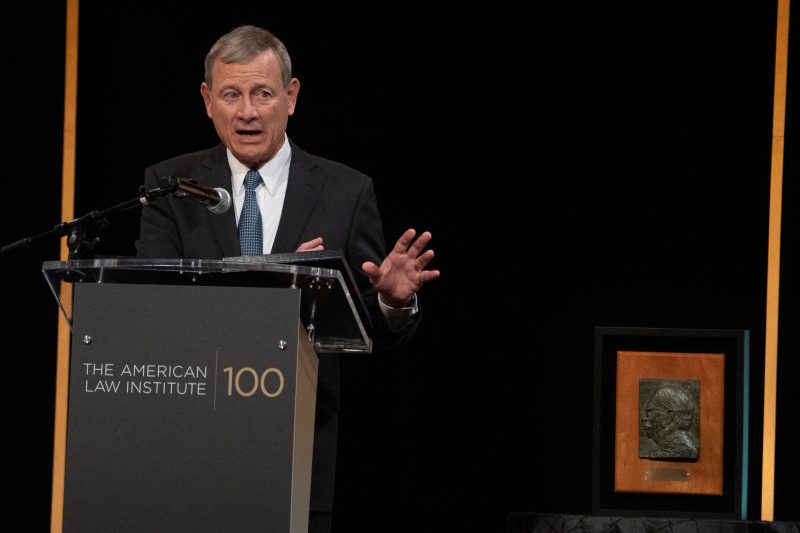Chief Justice John G. Roberts Jr. said Tuesday night that he was “confident” the Supreme Court will convince the public that it “adheres to the highest standards of conduct.”
Accepting an award at the American Law Institute, Roberts did not directly comment on the controversies that have surrounded the court’s members and their financial disclosures or the mounting congressional pressure for a specific code of conduct for the Supreme Court.
But he said that disturbances outside the court have not affected the nine justices: “Inside the court, there is cause for optimism,” he said.
Then he added:
“I want to assure people that I’m committed to making certain that we as a court adhere to the highest standards of conduct. We are continuing to look at things we can do to give practical effect to that commitment. And I am confident that there are ways to do that consistent with our status as an independent branch of government and the Constitution’s separation of powers.”
Roberts was accepting the organization’s Henry Friendly Medal, named after a judge for whom the chief justice clerked.
He said Friendly was a pessimist and would abhor the tenor of today’s legal world — mentioning a judge who was “shouted down and heckled” at a law school and continuing protests outside the homes of justices, who Roberts said now require around-the-clock protection.
He said when he thinks about the hardest decision he has had to make in 18 years as chief justice, it did not involve a case. “The hardest decision I had to make was whether to erect fences and barricades around the Supreme Court” in preparation for protests of the court’s decision that overturned the constitutional right to abortion the court had established nearly 50 years earlier in Roe v. Wade. The fences remained for months.
While Roberts and his colleagues have said they voluntarily abide by many of the guidelines for lower court judges, Senate Democrats have criticized the court for not enacting a code of conduct specific to the court. Roberts recently turned down an invitation to appear before the Senate Judiciary Committee, saying it would not be appropriate for the head of an independent branch of government to appear before the committee.
The committee itself appears torn about whether Congress can mandate an ethics code for the court or require it to enact one on its own.
Roberts’s remarks seemed intended to convey to lawmakers that the justices are working on it but do not want or need intervention from the political branches.



























